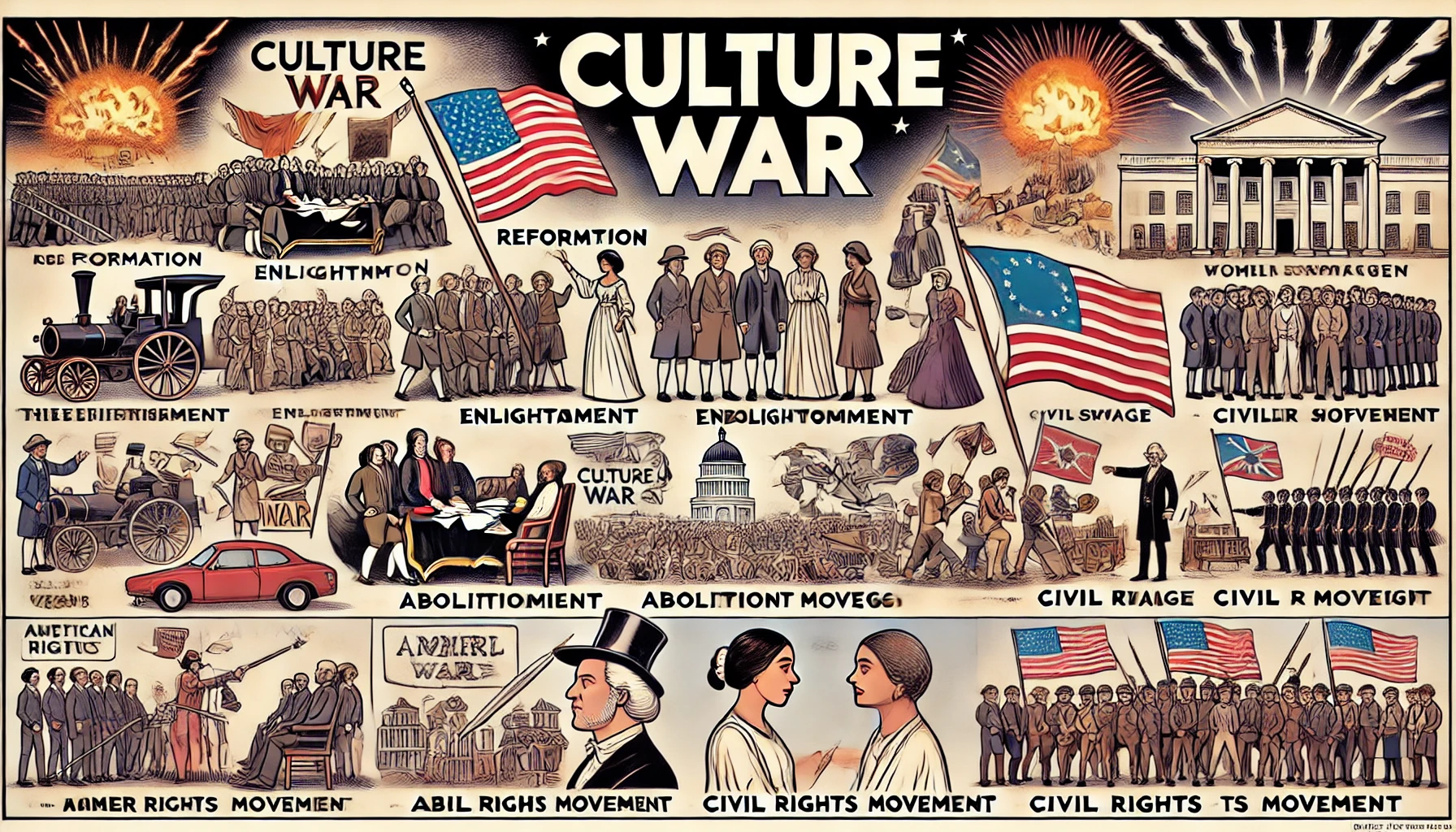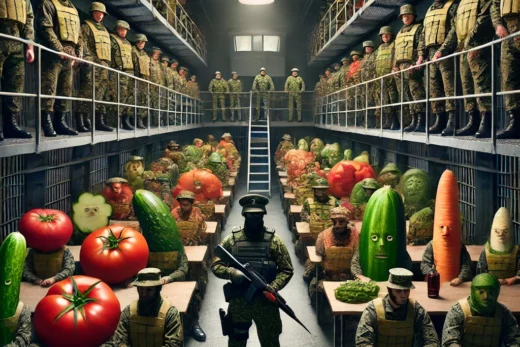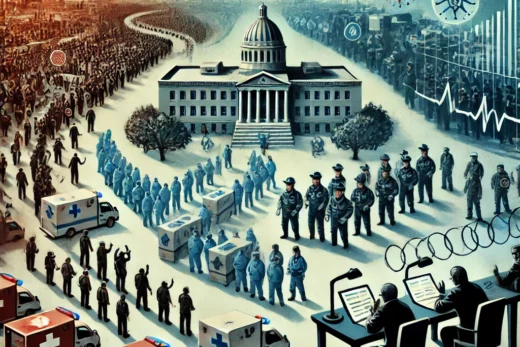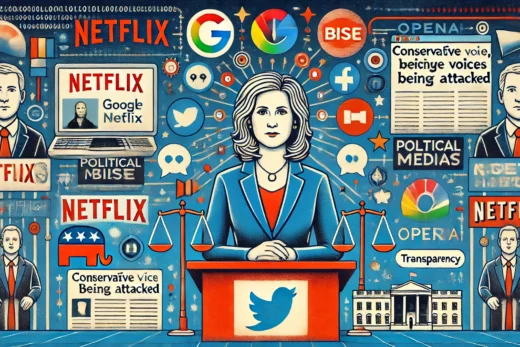
Culture wars, conflicts between social groups over cultural values and beliefs, have occurred throughout history. Here are some notable examples:
The Reformation (16th Century)
The Enlightenment (17th-18th Century)
- Conflict: Enlightenment thinkers vs. Traditional authority (church and monarchy).
- Issues: Reason and science vs. religious dogma and absolute monarchy.
- Outcome: Rise of secularism, individual rights, and democratic principles, influencing the American and French Revolutions.
Abolitionist Movement (19th Century)
- Conflict: Abolitionists vs. Pro-slavery advocates.
- Issues: Morality and legality of slavery.
- Outcome: Abolition of slavery in the United States following the Civil War and the Emancipation Proclamation.
Women’s Suffrage Movement (19th-20th Century)
- Conflict: Suffragettes vs. Anti-suffrage groups.
- Issues: Women’s right to vote and participate in politics.
- Outcome: Women gained the right to vote in many countries, including the 19th Amendment in the U.S. (1920).
Scopes Trial (1925)
- Conflict: Modernists vs. Traditionalists.
- Issues: Teaching of evolution vs. creationism in schools.
- Outcome: Highlighted the tension between science and religion, with a legal ruling that allowed the teaching of evolution.
Civil Rights Movement (1950s-1960s)
- Conflict: Civil rights activists vs. Segregationists.
- Issues: Racial segregation and discrimination.
- Outcome: Significant legal and social progress towards racial equality, including the Civil Rights Act of 1964.
The Sexual Revolution (1960s-1980s)
- Conflict: Traditional moralists vs. Advocates of sexual liberation.
- Issues: Sexual norms, contraceptive use, and LGBTQ+ rights.
- Outcome: Greater acceptance of diverse sexual behaviors and identities, leading to significant cultural shifts.
Vietnam War Protests (1960s-1970s)
- Conflict: Anti-war activists vs. Pro-war supporters.
- Issues: U.S. involvement in Vietnam, conscription, and anti-communism.
- Outcome: Influenced U.S. withdrawal from Vietnam and led to increased public skepticism of government policies.
Culture Wars in the U.S. (1980s-Present)
- Conflict: Conservative vs. Liberal ideologies.
- Issues: Abortion, LGBTQ+ rights, gun control, immigration, and secularism vs. religious influence.
- Outcome: Ongoing political and social polarization with significant impacts on legislation and public policy.
Brexit (2010s-Present)
- Conflict: Pro-Brexit vs. Anti-Brexit factions.
- Issues: National sovereignty, immigration, and economic policy.
- Outcome: United Kingdom’s departure from the European Union, leading to significant political and economic ramifications.
These examples illustrate how culture wars have shaped societies by challenging existing norms and fostering significant social, political, and legal changes.



